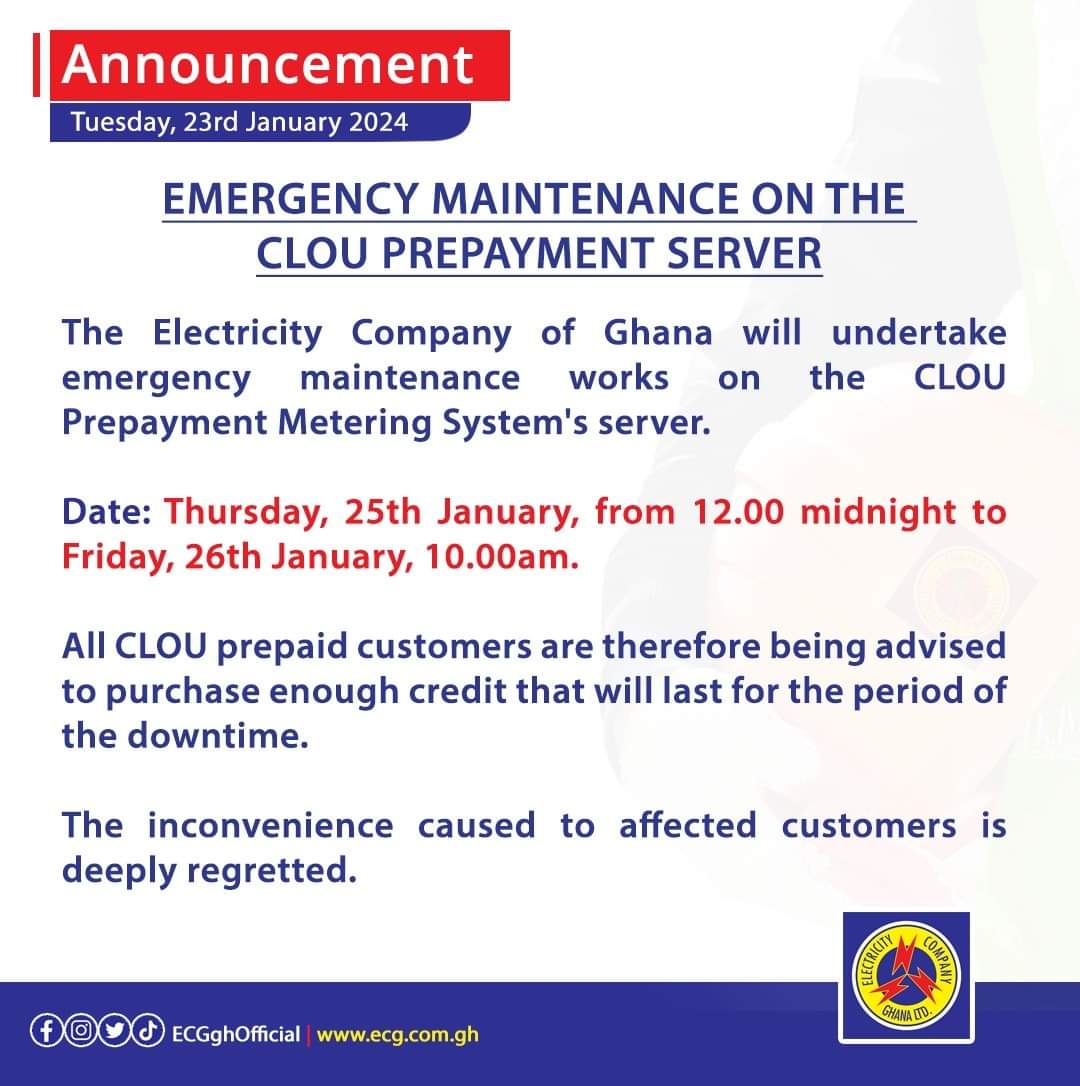
By J. N. Halm
I have a good friend who stays on the outskirts of the capital. He was one of the earliest to have moved to that community, when it was relatively undeveloped. The place has since become very developed.
The traffic situation heading to and from that community is enough proof that many more people have moved there since my friend did. One of the things this friend has going for him is that his property is well situated for business, and he intends to use it strategically.
He has actually rented out a couple of the spaces for a variety of businesses. So one would expect that he should be fine. But he is not.
The reason is that his biggest retail space is still vacant. It is not as if he has not had offers from businesses. He has had several juicy offers. He has, however, rejected all because he intends to use the place for his own business.
The problem is that he is unable to raise the necessary funds for the “big thing” he wants to do. He is therefore being forced to reconsider his intentions. This is, however, very frustrating for my good friend. He is an astute businessman. He knows his way around this town but he just cannot bring himself to deciding what to do with the space he has reserved for his own use.
In his frustration, he approached me, and that was when I said something that threw him off, totally. All I told him was to forget all his business-savviness and to do something different. I asked him to spend time to go around his community, asking his neighbours exactly what they need. Simple.
This is not a complicated strategy. I know. But trust me, it could be the beginning of a massive turnaround in the fortunes of my colleague. What I suggested, if adopted by this country’s entrepreneurs, could be Ghana’s most critical entrepreneurial transformation—the shift from seller to solver.
It could be a transformation that will turn struggling ventures into thriving business. Thankfully, many are coming to terms with this paradigm shift—right now, in markets, offices, and online stores across our nation.
The Seller Mindset: A Recipe for Struggle
Walk through any market in Ghana or even turn on any social media platform, and you will encounter hundreds of sellers operating from the same limiting playbook.
0They focus obsessively on their products, memorise features and specifications, and measure success by how many sales pitches they can deliver in a day. Their internal dialogue revolves around one question: “How can I sell more?”
This seller mindset creates a predictable pattern of struggle. When sales slow, sellers reduce prices. When competition intensifies, they add more products. When customers complain, they defend their offerings. It is a reactive, exhausting approach that treats every customer interaction as a battle to be won rather than a problem to be solved.
Consider the typical seller’s approach around Kwame Nkrumah Circle. Daddy K (not his real name) runs a mobile phone shop where he greets every customer with the same aggressive pitch about his latest smartphone models.
He highlights megapixels, processor speeds, and memory capacity with practiced enthusiasm. Yet most customers leave without buying, and those who do purchase rarely return. Daddy K interprets this as a pricing problem or a location issue, never questioning whether his entire approach might be flawed.
The seller mindset creates three fundamental problems. First, it positions the entrepreneur and customer as adversaries rather than partners. Second, it commoditises the business, making price the only differentiator. Third, it prevents genuine customer understanding, because sellers are too busy talking to listen.
The Solver Mindset: A Path to Sustainable Success
The solver mindset represents a fundamental philosophical shift. Instead of asking “What can I sell?” solvers ask “What problem can I solve?” This simple reframing transforms everything—how you approach customers, how you develop offerings, and how you measure success.
Return to my friend’s story. After asking around his neighbourhood, he discovered something fascinating. His neighbours were struggling with something he had not thought of at all. It was a challenge he had faced when he first moved into the community, but for some reason, he had found a way around it.
He therefore reckoned all the new neighbours would as well. That was when it hit him that if he were to create a business around that challenge, he would have a thriving business at hand. He was not going to sell anything to his neighbours; he was going to solve their problems.
The solver mindset operates from three core principles that align beautifully with African values of ubuntu and community service.
First, solvers lead with curiosity rather than conviction. Before Kofi launched his food delivery service, he spent two months simply asking restaurant owners and potential customers about their challenges. He discovered that the real problem was not delivery speed—it was unpredictable delivery windows that disrupted customers’ schedules. By prioritising predictability over speed, he created a service that customers valued far more than faster alternatives.
Second, solvers measure success by customer outcomes rather than transactions. Kwesi runs a remedial school. Unlike competitors who measure success by enrolment numbers, he tracks student grade improvements and university admission rates. This outcome focus drives every decision he makes—from hiring tutors to designing curriculum—and is making his centre the most sought-after in the community despite charging premium prices.
Third, solvers view customer success and business success as inseparable. When your customers win, you win. This creates perfect alignment of interests and eliminates the adversarial tension that plagues seller-based businesses.
Making the Transformation: Practical Steps
The shift from seller to solver is not merely philosophical—it requires concrete changes in how you operate your business. Here are five practical steps Ghanaian entrepreneurs can implement immediately.
Start with deep listening: Schedule conversations with ten current or potential customers. Do not pitch. Do not sell, simply listen. Ask about their challenges, their previous attempts at solutions, and what success would look like for them. Yaw, who runs a printing business, discovered through these conversations that his customers’ biggest challenge was not print quality or price—it was last-minute deadline anxiety. He restructured his entire operation around reliability and communication, transforming his business in the process.
Reframe your value proposition: Stop describing what you sell and start articulating what problems you solve. Instead of “We sell accounting software,” try “We help small businesses understand their financial health without hiring expensive accountants.” This reframing focuses your entire organisation on customer outcomes rather than product features.
Build feedback loops: Create systematic ways to learn from every customer interaction. Efua, who operates an online clothing boutique, sends a simple three-question survey after every purchase: What problem were you trying to solve? Did our product solve it? What could we do better? These insights have driven everything from inventory decisions to product development.
Invest in customer success: Allocate resources not just to acquiring customers, but to ensuring their success. This might mean extended onboarding, proactive check-ins, or educational content that helps customers maximise value from your offerings. The return on this investment is extraordinary—successful customers become loyal advocates who drive sustainable growth.
Measure what matters: Track customer success metrics alongside revenue metrics. Monitor customer retention rates, satisfaction scores, problem resolution times, and outcome achievement rates. These leading indicators predict business health far better than lagging indicators like monthly sales.
The Cultural Advantage
Ghanaian and African entrepreneurs possess a natural advantage in making this transformation. Our cultural values of community, mutual support, and collective success align perfectly with the solver mindset. The concept of ubuntu—”I am because we are”—is essentially the philosophy of customer-centric business expressed through traditional wisdom.
When you operate from a solver mindset, you are not adopting some foreign business philosophy. You are returning to the values that have guided African commerce for generations.
The market trader who remembers every customer’s story, the artisan who adapts their craft to each client’s needs, the service provider who treats customers as extended family—these traditional approaches embody the solver mindset that modern business gurus are only now discovering.
The Choice Before You
Every entrepreneur faces this choice daily: Will you be a seller or a solver? Will you focus on transactions or transformations? Will you measure success by what you extract from customers or by the value you create for them?
The businesses thriving in Ghana’s competitive marketplace have made their choice. They have embraced the solver mindset, transformed their customer relationships, and built sustainable success through genuine value creation.
My good friend is now excited about the prospects in his community. But he will tell you the excitement is not about establishing a business—it is about perspective. The moment he stopped seeing himself as someone who wants to sell something and started seeing himself as someone who wants to solve a problem for his neighbours, everything changed.
The question is not whether you can make this transformation. The question is: when will you start?

The post From seller to solver: A customer-centric entrepreneurial mindset transformation appeared first on The Business & Financial Times.
Read Full Story















Facebook
Twitter
Pinterest
Instagram
Google+
YouTube
LinkedIn
RSS